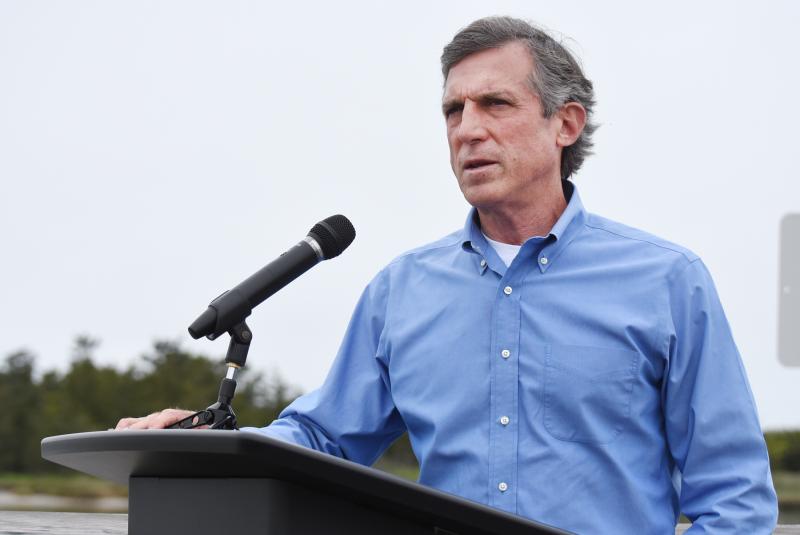As Delaware finishes up its first week of reopening under Phase 2 guidelines, there has been little mention of what to expect next.
“The governor has not committed to a firm date for Phase 3, at all,” said Lewes Mayor Ted Becker, who participates in a weekly call with the governor and other mayors.
In his weekly press conference June 16, Carney briefly mentioned the third phase of reopening Delaware's economy, but provided few details.
“Large gatherings present a challenge, and we're still going to watch the data to determine the date of moving into Phase 3,” Carney said.
Officials are working on several challenging sectors, he said, which include sports tournaments and playgrounds.
On June 14, Phase 2 guidance was revised to allow outdoor groups of more than 250 with approval by the Division of Small Business. The revision also allows sporting facilities and venues, and water parks to open if they submit a plan on how they will adhere to state guidance. The revision, however, is unclear about opening playgrounds, which earlier guidance had left up to local municipalities to decide.
Lewes City Manager Ann Marie Townshend said that the city had reopened playgrounds in Canalfront Park and George H.P. Smith Park. Officials in Rehoboth Beach and Milton are waiting until Phase 3. The playgrounds at the schools in Cape Henlopen School District will also remain closed until Phase 3, said Superintendent Bob Fulton.
Throughout the COVID-19 pandemic, Carney has emphasized the importance of wearing a face covering, social distancing in public, and practicing strict hand washing and sanitizing, and he reiterated those points at his recent press conference.
“It's important, [and something] we really need to lean into as we finish Phase 2 and move into Phase 3,” he said.
Restaurant concerns
Area restaurant officials have expressed concern about the lack of information that has been released about the next phase of reopening, especially when the current 6- to 8-foot distancing requirement between tables has limited many businesses from increasing the number of customers they can serve. Phase 2 allows restaurants to expand to 60 percent of their fire code capacity.
Becker said many of his town’s restaurants are still struggling with the Phase 2 requirements.
“They are having a problem because of the spatial constraints that are imposed under Phase 2,” he said during a June 17 Lewes Board of Health meeting. “Most of our in-town restaurants are too small to see an appreciable increase in the number of people they can seat.”
Most of the downtown restaurants can seat at most 50 to 60 people, he said, but under current restrictions, they are limited to 15 to 18, well under the 60 percent capacity allowed.
Grain, a new 400-seat restaurant at the Cape May-Lewes Ferry terminal, is also unable to reach 60 percent capacity, said co-owner Lee Mikles.
“In this Phase 2 with the extra capacity, it didn’t change a single bit of our footprint inside or out because of the spacing,” he said.
Becker said the governor is aware of the restaurants’ concerns.
“That is a concern that has been brought to the attention of the governor,” Becker said. “The Division of Public Health and the governor are assessing how they might accommodate some other changes to make that better for people.”
Dr. James Marvel, chair of the Lewes Board of Health, said the state needs to be careful about moving into Phase 3 too quickly.
“We don’t want to rush into Phase 3, because states like Florida have seen a significant increase and have started shutting down again,” he said. “We want to try to avoid that.”
Locally, Dr. David Tam, president and CEO of Beebe Healthcare, said June 17 that the COVID-19 census at the Lewes hospital has dropped below 10. That same day, Delaware's COVID-19 report for the entire state posted 83 hospitalizations and 13 critically ill patients.
Since April 19, 89 percent of COVID-19 deaths have involved individuals with underlying conditions. During that same time frame, 65 percent of deaths were residents of long-term care facilities.























































